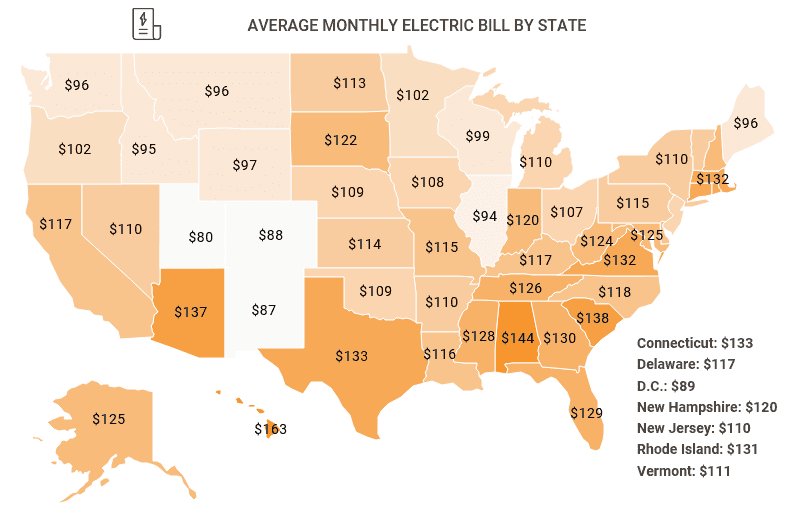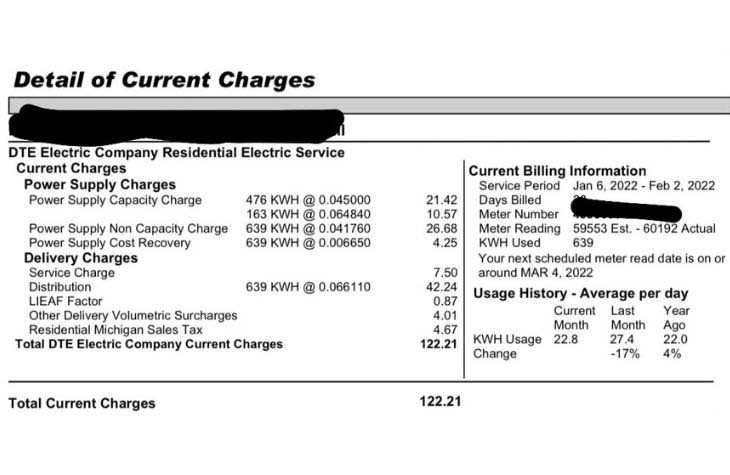Factors Influencing Electricity Bills

Understanding the factors that influence electricity consumption is crucial for managing your energy costs effectively. A 3-bedroom villa, with its larger living spaces and numerous appliances, presents a unique set of factors that contribute to its electricity bill.
Appliance Usage
Appliance usage is a primary driver of electricity consumption. The type, frequency, and duration of appliance use significantly impact your bill.
- Air Conditioners: Air conditioners are among the most energy-intensive appliances in a villa. Using them frequently, especially during peak hours, can dramatically increase your electricity bill.
- Refrigerators and Freezers: These appliances continuously run to maintain a constant temperature, consuming a significant amount of electricity over time.
- Water Heaters: Electric water heaters consume substantial energy, especially in larger villas with multiple bathrooms.
- Cooking Appliances: Electric ovens, stoves, and microwaves contribute significantly to energy consumption, particularly during meal preparation.
- Lighting: While individual light bulbs may seem insignificant, the cumulative effect of numerous lights, especially those left on for extended periods, can add up to a substantial portion of your electricity bill.
Climate
The climate in which your villa is located plays a significant role in your electricity consumption.
- Temperature: Hot climates necessitate frequent use of air conditioning, leading to higher electricity consumption.
- Humidity: High humidity can also increase the demand for air conditioning, further impacting your electricity bill.
Energy Efficiency
Energy efficiency refers to the ability of appliances and building features to minimize energy consumption while maintaining performance.
- Appliance Efficiency: Appliances with higher energy efficiency ratings consume less electricity for the same level of performance.
- Insulation: Proper insulation helps to maintain a comfortable temperature inside your villa, reducing the need for air conditioning or heating.
- Window Efficiency: Double-glazed windows and efficient window treatments help to reduce heat gain and loss, minimizing energy consumption for temperature control.
Appliance Consumption Comparison, Average dewa bill for 3 bedroom villa 2018
| Appliance | Average Power Consumption (Watts) |
|---|---|
| Air Conditioner (1 ton) | 1000 – 1500 |
| Refrigerator | 100 – 200 |
| Electric Water Heater | 3000 – 5000 |
| Electric Oven | 2000 – 3000 |
| Microwave Oven | 700 – 1200 |
| Incandescent Light Bulb (60 watts) | 60 |
| LED Light Bulb (10 watts) | 10 |
Average Electricity Bill Estimates

The average electricity bill for a 3-bedroom villa in 2018 varied significantly depending on several factors, including location, electricity tariffs, and consumption patterns.
Average Electricity Bill Estimates for a 3-Bedroom Villa in 2018
The following table provides estimated average electricity bills for a 3-bedroom villa in 2018, considering different scenarios:
| Location | Electricity Tariff (kWh) | Average Consumption (kWh) | Average Bill (USD) |
|---|---|---|---|
| City A | $0.15 | 1,000 | $150 |
| City B | $0.20 | 1,200 | $240 |
| City C | $0.18 | 1,500 | $270 |
The average consumption (kWh) in the table assumes a moderate usage pattern, considering factors like air conditioning, lighting, and appliance usage.
Factors Influencing Electricity Bill Variations
Electricity bills can vary significantly based on seasonal changes and occupancy levels.
* Seasonal Changes: During summer months, increased use of air conditioning can lead to higher electricity consumption and bills. Conversely, during winter, heating requirements may increase energy consumption.
* Occupancy Levels: A higher number of occupants in a villa will generally result in increased electricity usage, leading to higher bills. For instance, a villa occupied by a family of four will likely have higher energy consumption than a villa occupied by a couple.
Understanding the factors influencing electricity consumption can help homeowners make informed decisions to manage their energy usage and reduce their bills.
Tips for Reducing Electricity Consumption: Average Dewa Bill For 3 Bedroom Villa 2018

Reducing electricity consumption in a 3-bedroom villa can significantly impact your energy bill and contribute to a more sustainable lifestyle. By implementing energy-saving measures, you can optimize appliance usage, adopt eco-friendly practices, and potentially save hundreds of dollars annually.
Optimizing Appliance Usage
Efficient appliance usage is crucial for reducing electricity consumption.
- Turn off appliances when not in use: This simple habit can make a significant difference. Unplug devices like phone chargers, laptops, and TVs when not in use, as they continue to draw power even in standby mode.
- Wash clothes in cold water and air-dry them: Heating water for washing consumes a significant amount of energy. Cold water washing is just as effective and saves energy. Additionally, air-drying clothes instead of using a dryer can save a considerable amount of electricity.
- Use the dishwasher efficiently: Only run the dishwasher when it’s full, and avoid pre-rinsing dishes, as modern dishwashers are designed to handle food residue.
- Optimize refrigerator settings: Ensure your refrigerator is set to the recommended temperature (around 37-38°F) and avoid keeping the door open for extended periods. Regularly defrost the freezer to maintain efficiency.
- Use energy-efficient appliances: Look for appliances with the Energy Star label, indicating they meet energy-efficiency standards. These appliances often have lower operating costs and can significantly reduce your electricity bill.
Implementing Energy-Saving Measures
Implementing energy-saving measures in your villa can significantly reduce electricity consumption.
- Install LED lighting: LED lights consume significantly less energy than traditional incandescent bulbs, providing substantial savings on your electricity bill. They also last much longer, reducing the need for frequent replacements.
- Utilize natural light: Maximize the use of natural light during the day by opening curtains and blinds. This can reduce the need for artificial lighting, especially in well-lit rooms.
- Install programmable thermostats: Programmable thermostats allow you to set different temperatures for different times of the day, optimizing heating and cooling based on your schedule. This can significantly reduce energy consumption, especially when you’re away from home.
- Insulate your home: Proper insulation helps prevent heat loss in winter and heat gain in summer, reducing the strain on your HVAC system and lowering your electricity bill. Consider insulating walls, ceilings, and attics for optimal results.
- Seal air leaks: Air leaks around windows, doors, and other openings can significantly impact your energy efficiency. Seal these leaks with weather stripping, caulk, or foam sealant to prevent drafts and reduce energy loss.
Adopting Sustainable Practices
Sustainable practices play a vital role in reducing electricity consumption and minimizing your environmental impact.
- Use energy-efficient appliances: Investing in energy-efficient appliances can significantly reduce your electricity bill over time. Look for appliances with the Energy Star label, indicating they meet energy-efficiency standards.
- Install solar panels: Solar panels can generate electricity from sunlight, reducing your reliance on the grid and lowering your electricity bill. Consider installing solar panels on your roof to harness renewable energy and contribute to a more sustainable future.
- Reduce water consumption: Water heating consumes a significant amount of energy. Reduce your water usage by taking shorter showers, fixing leaks promptly, and using water-efficient appliances.
- Choose energy-efficient products: When purchasing new appliances, electronics, or other products, consider their energy efficiency. Look for products with high energy efficiency ratings to minimize your electricity consumption.
- Practice energy conservation: Make energy conservation a conscious effort in your daily life. Turn off lights when leaving a room, unplug devices when not in use, and use energy-efficient appliances to minimize your electricity consumption.
Calculating Potential Savings
Calculating the potential savings from implementing these tips can help you understand the financial benefits of adopting energy-saving measures.
For example, replacing five traditional incandescent light bulbs with LED bulbs can save around $50 per year in electricity costs.
Installing solar panels on your roof can significantly reduce your reliance on the grid, potentially saving hundreds of dollars annually on your electricity bill.
By implementing a combination of these energy-saving measures, you can potentially save hundreds of dollars annually on your electricity bill while reducing your environmental impact.
Average dewa bill for 3 bedroom villa 2018 – The average DEWA bill for a 3-bedroom villa in 2018 varied depending on factors like usage and the villa’s location. But while you’re focused on those costs, don’t forget about adding a touch of luxury to your home. Adding a splash of color with red rose bathroom rugs can make a big difference in your bathroom’s ambiance.
Ultimately, finding the perfect balance between comfort and budget is key, and understanding the factors that influence your DEWA bill is a good starting point.
The average DEWA bill for a 3-bedroom villa in 2018 would have varied depending on factors like usage and the villa’s energy efficiency. To create a luxurious and inviting atmosphere, consider adding a touch of elegance with burgundy and gold bathroom rugs , which can complement the villa’s overall aesthetic.
Of course, remember to factor in the cost of these rugs when calculating your overall expenses, just as you would with your DEWA bill.